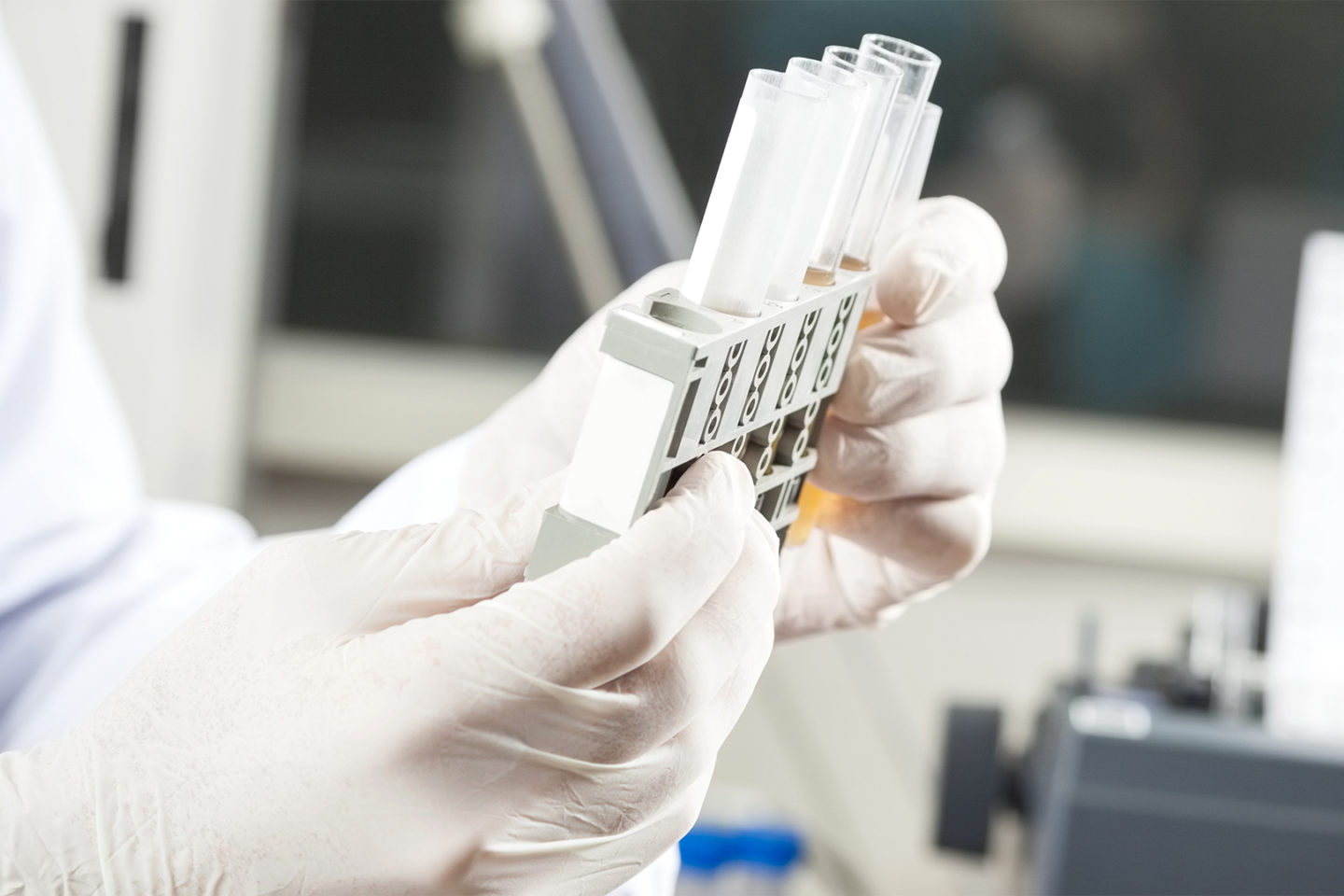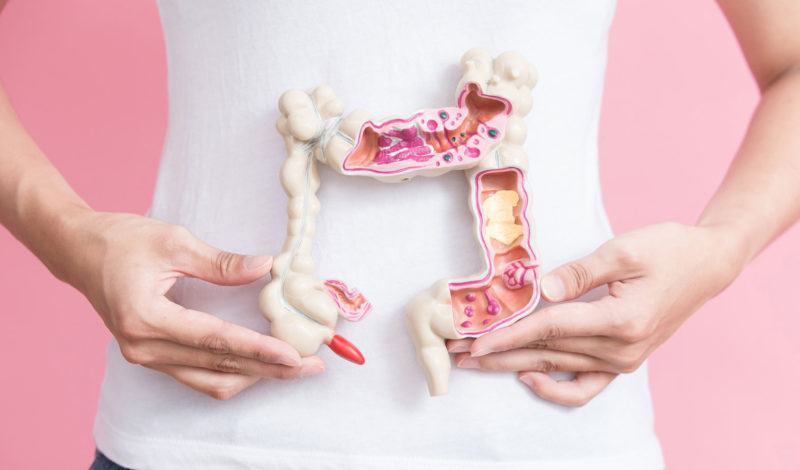If you have bowel disease symptoms, the question you may have is: Are the symptoms due to the intestine or [...]

Treat intestinal inflammation: What should be noted?
Frequent stomach cramps, pain, diarrhoea or even fever are just some of the numerous symptoms of stomach or intestinal diseases. With the various forms of intestinal inflammation, it is not always easy to find out what is behind the symptoms. But only with a correct diagnosis intestinal inflammations can be treated effectively. A reliable way to find the cause of the symptoms is a detailed stool examination. With the help of the intestinal test INTEST.pro the bacteria of the intestinal flora (microbiota) can be analysed. Therefore you take a stool sample easily and discreetly at home and send it to the experts of BIOMES. They create your personal microbiota profile and help you to recognize if and to how much your intestinal flora is weakened.
Before a treatment of intestinal inflammation: make a careful diagnosis
An inflammation in the intestine is mostly due to irritations of the intestinal mucosa – either in one or several places. In some cases, intestinal complaints are added to intestinal problems. Those affected often feel weak, have no appetite and suffer from nausea, diarrhoea and fever. Depending on the severity of the symptoms, inflammation of the intestines can have a significant impact on the affected person’s everyday life and can even prevent him or her from working during a severe episode of the disease.
To find out exactly what to do when you are affected by intestinal inflammation, an examination by a doctor is necessary. This includes the following steps:
- a detailed conversation between doctor and patient to identify possible connections between certain everyday situations and intestinal complaints
- an external examination of the gastrointestinal tract (by palpation) to check it for hardening as a possible cause of pain
- an ultrasound scan, to detect unusual areas on the bowel
- a blood test, in order to detect abnormal blood values
- a stool examination, to determine unusual stool contents
- an examination of the stomach or intestine to identify more precisely any discrepancies detected previously
In many cases, however, intestinal inflammations are not the result of any physical causes, but of psychological causes. Ongoing stress in everyday life can cause illness – whether private or professional. It often affects the functions of the digestive tract and thus the immune defence. As a result, bacteria and other harmful invaders have an easy time causing inflammation in the intestines. Treating intestinal inflammation at an early stage so that the organ can regenerate quickly is therefore essential.

Inflammation of the bowel: what helps against it?
There are acute and chronic intestinal inflammations. Which therapy is suitable depends on which of these categories the inflammation belongs to. However, both are usually triggered by bacteria or viruses. Acute intestinal inflammations can often be treated quickly if, for example, the consumption of spoiled food is the cause. If the inflammation is only slightly pronounced, a lot of rest, fluids and easily digestible food can promote the recovery of the affected person.
Chronic intestinal diseases are much more difficult to treat. They include Crohn’s disease and Ulcerative colitis. Both diseases have similar symptoms to irritated bowel syndrome. In order to prevent confusion, it is important to clarify where the symptoms come from. In the case of severe intestinal inflammation, treatment with certain medications may be advisable, to combat the symptoms. For example, antibiotics or cortisone can be used as anti-inflammatories, paracetamol for pain relief, antispasmodic butylscopalamine or loperamide to combat diarrhoea.
If stress and worries are behind the intestinal problems, those affected should counteract the causes of the psychological stress. Medicines against intestinal bowel inflammation relieve the symptoms, but what helps in the long term with a psychologically conditioned intestinal inflammation is stress reduction. This is the only way to fight the root cause of the complaints. Measures such as autogenic training, progressive muscle relaxation or sport and physical activity can help to cope with stress. In addition, a change in diet can have a positive effect on the symptoms.
What helps best against intestinal inflammation differs from person to person. The personal circumstances and the individual course of the disease play a decisive role. Without medical advice, treating intestinal inflammation with household remedies can be very risky. In the worst case, the wrong treatment can turn a harmless inflammation into a chronic inflammation.
Help with intestinal inflammation: An intestinal self-test and a good treatment of intestinal inflammation
If you think there is a intestinal disorder or food intolerance behind intestinal complaints, you should start by doing a intestinal test. With the self-test INTEST.pro you can quickly determine the individual composition of the intestinal flora: A simple stool sample taken at home is sufficient for the experts in the laboratories of BIOMES to determine what your intestinal flora is like.
You can view the results in a personal, password-protected dashboard area on the BIOMES website. They give information about a possible predisposition to intolerances, your digestion, calorie utilization and vitamin synthesis as well as about the immune defence and the general composition of your intestinal flora. In order for possible intestinal inflammations to be treated professionally, a visit to the doctor is recommended. The doctor will then determine whether the symptoms are a disease, food intolerance or a harmless stomach upset.


